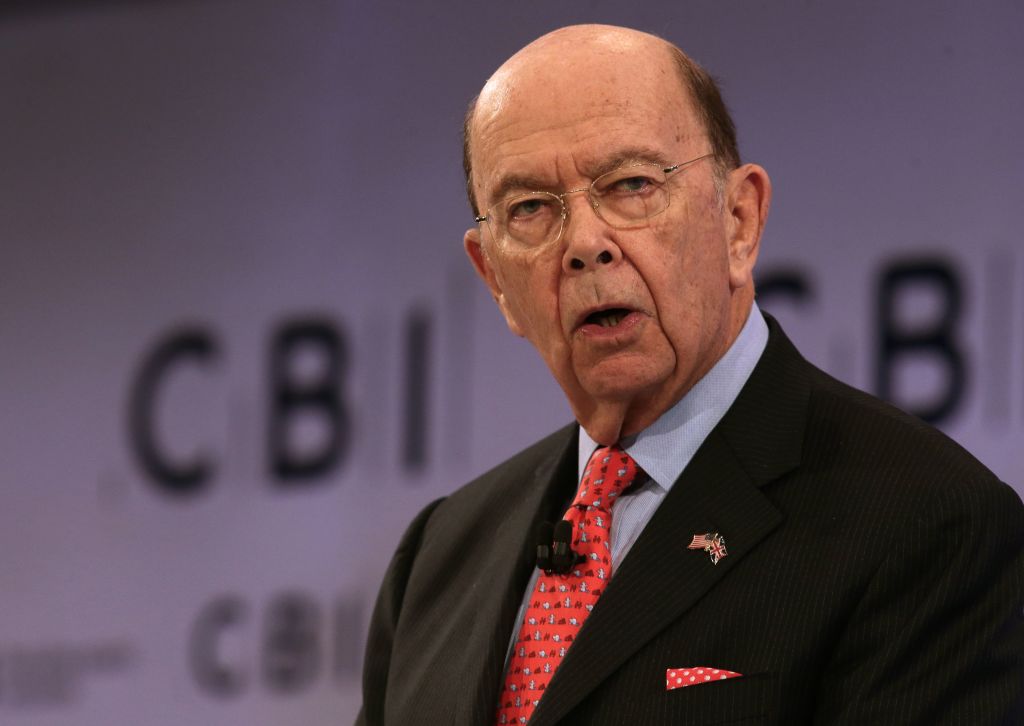Census citizenship question dispute will head to Supreme Court


A free daily email with the biggest news stories of the day – and the best features from TheWeek.com
You are now subscribed
Your newsletter sign-up was successful
The Supreme Court has opted to hear arguments over President Trump's administration's decision to add a question of citizenship to the 2020 census.
The question, which would directly ask if "this person is a citizen of the United States," has been challenged in six lawsuits around the U.S. This has led to disputes over what evidence can be brought up during the trials, and if Trump officials' motives in enacting the addition can be discussed as well. But the Supreme Court's timing on this decision is "curious," seeing as the controversial census is already undergoing one trial in New York, The Washington Post writes.
Commerce Secretary Wilbur Ross announced the addition in March, originally claiming the Justice Department ordered the move. But documents unveiled in one of the lawsuits later showed Ross talked about adding the question with former Trump strategist Stephen Bannon, suggesting Ross drove the change himself. Ross and other administration officials' motivations for the addition are now slated for discussion in the forthcoming Supreme Court hearing.
The Week
Escape your echo chamber. Get the facts behind the news, plus analysis from multiple perspectives.

Sign up for The Week's Free Newsletters
From our morning news briefing to a weekly Good News Newsletter, get the best of The Week delivered directly to your inbox.
From our morning news briefing to a weekly Good News Newsletter, get the best of The Week delivered directly to your inbox.
The Trump administration has fought to block Ross from facing questioning over the matter, and last month the Supreme Court refused to allow the deposition of Ross in the New York case, per NPR. U.S. District Judge Jesse Furman has scheduled closing arguments in the New York case for Nov. 27, while the Supreme Court has the case slated for next February.
The citizenship question has faced criticism from advocates who say undocumented people will avoid answering the census out of fear. That would lead to undercounts in Democrat-heavy areas, and perhaps cut federal aid that undocumented immigrants in those areas rely on.
A free daily email with the biggest news stories of the day – and the best features from TheWeek.com
Kathryn is a graduate of Syracuse University, with degrees in magazine journalism and information technology, along with hours to earn another degree after working at SU's independent paper The Daily Orange. She's currently recovering from a horse addiction while living in New York City, and likes to share her extremely dry sense of humor on Twitter.
-
 The 8 best TV shows of the 1960s
The 8 best TV shows of the 1960sThe standout shows of this decade take viewers from outer space to the Wild West
-
 Microdramas are booming
Microdramas are boomingUnder the radar Scroll to watch a whole movie
-
 The Olympic timekeepers keeping the Games on track
The Olympic timekeepers keeping the Games on trackUnder the Radar Swiss watchmaking giant Omega has been at the finish line of every Olympic Games for nearly 100 years
-
 ABC News to pay $15M in Trump defamation suit
ABC News to pay $15M in Trump defamation suitSpeed Read The lawsuit stemmed from George Stephanopoulos' on-air assertion that Trump was found liable for raping writer E. Jean Carroll
-
 Judge blocks Louisiana 10 Commandments law
Judge blocks Louisiana 10 Commandments lawSpeed Read U.S. District Judge John deGravelles ruled that a law ordering schools to display the Ten Commandments in classrooms was unconstitutional
-
 ATF finalizes rule to close 'gun show loophole'
ATF finalizes rule to close 'gun show loophole'Speed Read Biden moves to expand background checks for gun buyers
-
 Hong Kong passes tough new security law
Hong Kong passes tough new security lawSpeed Read It will allow the government to further suppress all forms of dissent
-
 France enshrines abortion rights in constitution
France enshrines abortion rights in constitutionspeed read It became the first country to make abortion a constitutional right
-
 Texas executes man despite contested evidence
Texas executes man despite contested evidenceSpeed Read Texas rejected calls for a rehearing of Ivan Cantu's case amid recanted testimony and allegations of suppressed exculpatory evidence
-
 Supreme Court wary of state social media regulations
Supreme Court wary of state social media regulationsSpeed Read A majority of justices appeared skeptical that Texas and Florida were lawfully protecting the free speech rights of users
-
 Greece legalizes same-sex marriage
Greece legalizes same-sex marriageSpeed Read Greece becomes the first Orthodox Christian country to enshrine marriage equality in law
